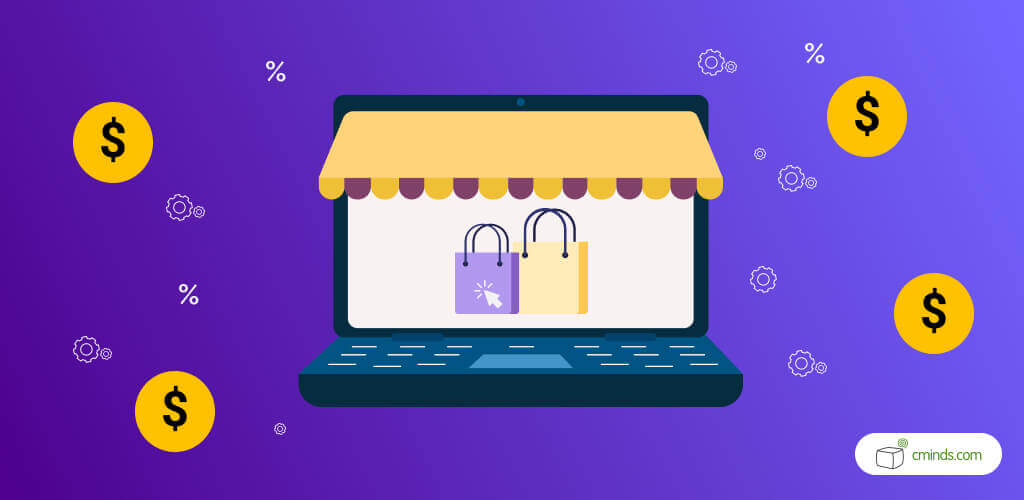Here at CreativeMinds we like to think we’ve got our finger on the pulse of the eCommerce community, and that includes knowing what’s what when it comes to the latest news and trends around the world.

We’ve already talked about essential 2020 trends that you can expect to see evolve across the year, but in order for you to get to grips with what’s happening in the world of eCommerce we thought we’d take a closer look at some of the year’s biggest trends.
In this blog, it’s the turn of personalization – a key trend exploding onto the scene and becoming vitally important to eCommerce businesses around the world.
So, without further ado, here’s everything you need to know about one of the hottest eCommerce trends for 2020: personalization.
December 2024 Offer – For a Limited Time Only:
Get Automatic Related Products Extension for Magento 2 for 20% off! Don’t miss out!
What is Personalization?

Personalization is a technique used by eCommerce stores to deliver a highly personal experience to each customer as they browse the store. Think of it like the digital equivalent of walking into a physical store and being greeted by a friendly clerk who helps you to find exactly what you’re looking for.
So, how do eCommerce stores deliver a personalized experience when there’s no opportunity to chat with the customer?
Achieving personalization requires personal data from each shopper. Then, this personal data – including demographics, previous purchases, and browsing history – is used to closely monitor the customer and present them with the products that they’re most likely to want/need as they browse.
Why is Personalization Important for Your eCommerce Store?

Personalization is becoming increasingly important to the success of eCommerce. It can help to not only engage your shoppers, but to increase sales too.
These stats compiled by BloomReach illustrate the importance of personalization:
- Marketers see an increase in sales when they provide shoppers with a personalized experience, with some reporting an upturn of as much as 20%.
- 80% of consumers say they are more likely to buy from an eCommerce store that gives them a personalized experience.
- 77% of shoppers have recommended a business that uses personalization to someone they know, and an equal number say that they’re happy to pay more for a brand that uses this technique to engage them.
With figures like this, it’s important that you bring personalization to your own eCommerce store.
Types of Personalization

So how can you harness the power of personalization? Firstly, you need to understand different methods of personalization, and then think about how you can bring them to your own store based on what you have to offer your customers.
Broadly speaking, personalization techniques can fall into one of these categories:
Navigational
What is it? As the name suggests, navigational personalization influences how shoppers navigate around your store – pointing them towards what they’re most likely to want to buy from you.
What do you need? For navigational personalization to work, you need to know exactly what your customer wants. To do this you need to know two key attributes: browsing history and previous purchases.
How can you do it? If your customer has been browsing for new sneakers but hasn’t bought any yet, a navigational personalization tool would direct them towards the sneakers on your website by prioritizing that category and making it more prominent on your sight. Clever, right?
Predictive
What is it? Predictive personalization is like having your very own eCommerce crystal ball – it helps you to predict what a shopper might purchase next.
What do you need? The predictive technique draws on other customer’s data, to identify what consumers are most likely to purchase based on other people’s shopping habits.
How can you do it? It’s likely that you’ve noticed predictive personalization techniques as you browse the web. Think of times when you’ve seen adverts for products under the header ‘Shoppers also bought…’ or ‘You might also like…’
Tip: M2 Automatic Related Products
For top-notch prediction, add a box of related products, upsells and cross-sells automatically.
You can easily achieve more cross-sells with the Related Products Magento extension.
Segmented
What is it? This kind of personalization involves segmenting your customers based on their demographics – including age and gender – and pushing deals that are most suited to them.
What do you need? Segmented personalization methods are most useful when it comes to email marketing, so you’ll need a solid mailing list along with data about customer demographics, browsing history, and previous purchases.
How can you do it? A segmented email campaign is an effective tool to put personalized offers directly into the laps of the consumers who will be most interested in them. It’s a simple, cost effective way of providing your shoppers with a personalized experience that will draw them back to your store.
Contextual
What is it? You guessed it – contextual personalization revolves around providing ads that draw on the shopper’s context. Be it the location they’re in or the device they’re using to browse.
What do you need? The data you need really depends on what you’re focussing on – if you’re going for a localized approach you’ll obviously need to know your shoppers location, but it will be different for each context.
How can you do it? A popular way of offering contextual personalization is by changing your website with the weather – and we mean this literally! If you know the forecast for a certain area, you could consider changing your homepage to reflect it. Think umbrellas when it’s raining and sunblock when it’s set for a heatwave.
The Future of Personalization in eCommerce

Personalization is becoming integral to eCommerce stores across the globes, and as shoppers flock to digital stores like never before, we think it’s going to become more important than ever across the remainder of 2020 and into the future.
eCommerce stores offering a more personalized experience are really reaping the rewards, so it’s a trend that we would encourage all eCommerce stores – both big and small and across all industries – to think about implementing them in their marketing campaigns.
Do you have any experience with personalization, or tips and tricks to share? Leave us a comment to let us know your thoughts and check out the CreativeMinds blog for more information about the latest 2020 eCommerce trends.


